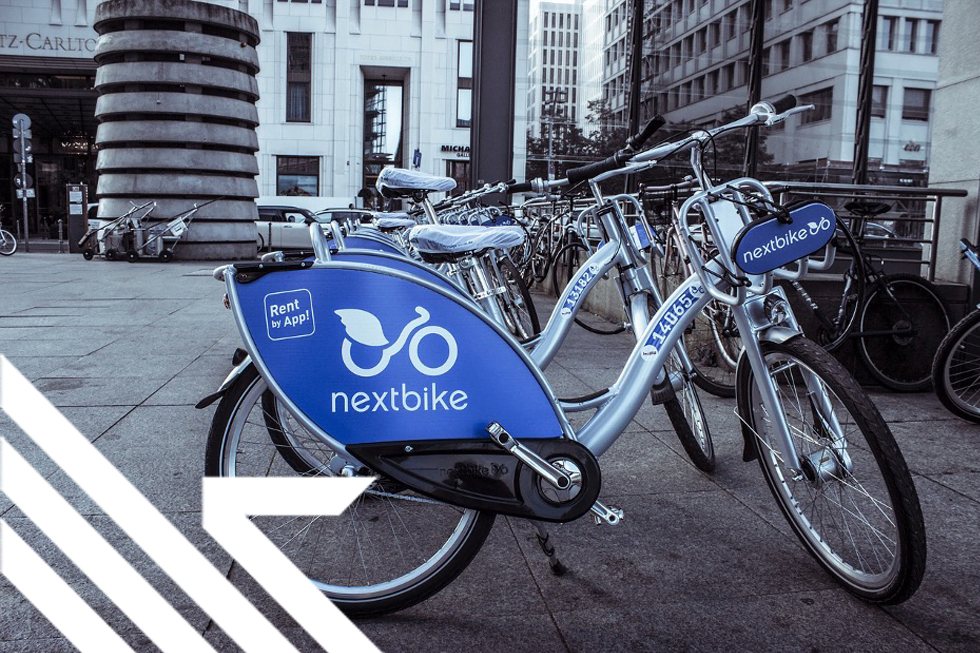You’ve probably heard about the disruption happening in the retail, transport, and hospitality, among other industries. It goes by various names, including collaborative consumption, access over ownership, on-demand or peer-to-peer economy, and more commonly, the sharing economy.
The sharing economy business model is driving companies and consumers to reconsider the use of assets, especially those that are under-utilized.
Research by statista.com indicated that, by 2016, 44.8 million Americans were active subscribers to the sharing economy, and that figure was projected to shoot up to 86.5 million by 2021. Today (2022), the overall global revenue from this economy is hurtling towards the 40.2-billion-dollar mark.
But what is the sharing economy all about?
What is a sharing economy?
This is a peer-to-peer (P2P) economic model in which a company uses a digital platform to match service or product owners directly with consumers. A sharing economy is structurally different from conventional business models because the company offering the service or product often does not own it. They only enable interaction between buyers and sellers, usually at a fee.
In traditional businesses, people rent, buy, rent or sell products and services, while those engaged in the sharing economy collaborate, facilitate and develop relationships purely on trust.
American sociology professors Marcos Felson and Joan Spence introduced the sharing economy concept in 1978, indicating that collaborative consumption and its accompanying behavior were the geneses of the sharing economic theory.
The theory got a boost roughly five years later with the beginning open source software movement where programmers could write code to solve problems collectively.
Today, it is a broad business concept under which individuals monetize underutilized assets (houses, cars, bicycles, clothing, toys, tools, and others) for an extra income. Companies that pioneered and established the sharing economy include eBay, Uber, Airbnb, Fiverr, Hubble, Nextbike and Stashbee.
The word “broad” in the previous paragraph points to the ambiguity that stalks the term sharing economy. So far, the economy has attracted diverse players and generated a considerable discussion about whose transactions rightly apply to the concept.
For example, some have put Uber’s suitability under this concept in question, arguing that since a consumer simply requests to be driven to the desired destination, nothing is being shared in the real sense.
Others believe that Uber, Lyft, and other ridesharing entities fit in well because the arrangement involves a car owner granting a requester temporary access to their underutilized physical asset (the car) for financial gain. In other words, they are sharing their car with someone even though the taxi business may not be their economic mainstay.
The hospitality wing hasn’t been spared the doubts either. There seems to be a consensus that Airbnb-facilitated consumer–consumer (C-C) lodging rentals fit well in the sharing economy, but an individual acquiring a second home to rent it out to holidaymakers does not.
In a joint attempt to put the sharing economy into perspective, professor Koen Frenken (innovation studies, Utrecht University) and Professor Juliet Schor (Sociology, Boston University) wrote;
“it is about consumers granting each other temporary access to under-utilized physical assets (idle capacity), possibly for money.”
More recently, though, economists have clarified that the sharing economy has cast its application far beyond mere access to under-utilized resources to embrace the various blockchain use cases like bitcoin, Ethereum, decentralized finance (Defi), NFTs, gaming, and more.
Models of the sharing economy
Several business models power this concept:
The access-based business model
The access business model is premised on under-utilized resources, also called the “surplus capacity” business model. It is primarily powered by the principle of access to goods and services via an online platform.
Instead of purchasing the product, the consumer only accesses it when the need arises. Generally, the platform offers physical and immaterial assets that interested users can rent.
Examples of such platforms are the Romanian car rental service, Getpony, and FLOOW2 in Luxembourg.
So far, the Access-based model has been instrumental in reshaping customers’ thinking and behavior to prioritize access to the product over product ownership.
Value creation: It is achieved by the fact that consumers no longer have to own but simply access products and services
Delivery value: The platform and the specific locations where products can be accessed render the delivery value
Value capture: The users are charged a service beneficiary fee
On-demand service provider
In simple terms, on-demand service provision means delivering goods and services to customers when they request or place an order. The model aims to take the shortest delivery time at the requester’s doorstep.
This idea leverages speed to offer quick solutions, making it quite popular in an era when everyone is seeking prompt answers to everything.
Considering its current potential for market growth, several companies are using on-demand platforms to deliver orders to customers as soon as possible. Conveniently, most firms transact via mobile apps making the services even more accessible.
Value creation: is achieved by matching the requester and the service provider.
Value delivery: The app facilitates order processing and delivery.
Value capture: The service users are charged.
The digital platform ensures transaction efficiency while opening the window to evaluate the provider and consumer through a rating system.
Marketplace Business Model
This model is from a regular business since the marketplace platform does not sell products directly. Instead, they facilitate access to transactions. Take Airbnb, for example; this is a typical online marketplace for lodging, focusing more on homestays (i.e., vacation rentals) and tourism activities.
You can access the service through their website and mobile app. The San Fransico-based company does not own any property listed on their website or app. Instead, it mainly profits by taking commissions from the bookings.
In a few cases, the company might co-own the assets with partners. An example of a service provider with this arrangement is the German bike-sharing platform Nextbike. The bikes that users rent are manufactured with the direct involvement of the company.
Value creation: Airbnb ensures safer and faster market access for the homeowner and the holidaymaker. In a nutshell, marketplaces hook up or connect supply and demand.
Delivery value: The transactions are fulfilled on an online platform.
Value capture: The provider and consumer are charged a facilitation fee.
The Downside Of The Sharing Economy
With the tremendous success registered by notable groups like Uber, Airbnb, Nextbike, and e-commerce giants like Amazon, there is no denying that the sharing economy’s brighter days are still ahead.
In 2015, a PricewaterhouseCoopers study predicted that the economy could hit or even surpass the $335-billion-dollar mark in spending by 2025.
However, every good idea has its fair share of flaws, and this concept is no exception. Let’s analyze the sharing economy’s disadvantages briefly.
Privacy and Safety Concerns
Glaring privacy and safety concerns affect customers and contractors alike, especially around the on-demand business model. Whenever you request an Uber or Lyft ride, you essentially entrust yourself to a total stranger.
Conversely, since Uber drivers pick random passengers without necessarily checking their background, it puts them at the risk of serving bad actors.
Also, whenever you rent out part of your house on VRBO or Airbnb, you open a stream of strangers to your home. Well, in most cases, you may entertain good guests, but you can never tell when a wrong character will sneak in.
The Risk of Scams and Fraud
While transacting online, Uber riders and drivers are not safe from fraud if either party is hell-bent on committing a misdemeanor. Crafty Lyft and Uber drivers can easily con riders by asking for cash in advance or charging extra fees on their PayPal account or credit card.
On the other hand, drivers can be ripped off by riders who cancel trips midway, use fake credit cards, or insist on boarding along with their friends.
No Customer Loyalty
In a sharing economy, customers may not see the need for brand loyalty, and they keep changing platforms to take advantage of competing offers.
The story isn’t different for Airbnb, VRBO, and companies in that space. Food service apps are frequently launching, and we currently have Doordash, GrubHub, Ubereats, Postmates, and more. It is natural for a consumer to want to move on to a different company to taste a new experience.
Common Criticisms of the Sharing Economy
The criticism leveled against the sharing economy often lingers around regulatory uncertainty. Federal, state, or local authorities regulate rental services, but cartels of unlicensed entities offering these services may be flouting the regulations and evading taxation. This gives them an advantage enabling them to charge below regulated market rates.
Also, poor government oversight, or the lack of it, has aided serious abuses of the sellers and buyers in the ecosystem. A streak of serious cases has exposed;
Hidden filming equipment in rented rooms
Litigating contractors over unfair treatment by platform owners
Hijacked or Murdered customers by fraudulent rideshare and rental providers.
Another concern is the fear that most personal information online can create gender or racial bias among users. This is possible, especially when users are given the window to choose who to share a home or vehicle.
In other cases, there is subtle statistical discrimination through an algorithmic selection of users based on characteristics such as criminal records or poor credit history.
At some point, Airbnb had to deal with complaints from Latino and Afro-American would-be renters due to a developing trend of some hosts being unwilling to take them in.
However, as the sharing economy evolves, key industry players have committed to dealing with bias at the algorithmic and user level by limiting the amount of information about sellers and buyers.
Image courtesy of Pixabay.




